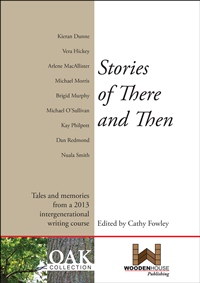
ILP | Research
Research
EHLSSA - European Home Learning Service for Seniors Association (2014 – 2017)
 DCU ILP are partners in an Erasmus + funded project which started in September 2014.
DCU ILP are partners in an Erasmus + funded project which started in September 2014.
The EHLSSA project - European Home Learning Service for Seniors Association – aims at providing access to continuing education to seniors through the establishment of a Europe-wide, specifically adapted learning infrastructure: the European Home Learning Service. This learning service includes the provision of a learning management system, training programmes for seniors and measures for tele-tutors to support older people in learning.
EHLSSA promotes digital inclusion for senior citizens and supports the target group effectively and individually in becoming competent ICT (Information and Communication Technologies) users in a knowledge-based economy and society. Yet, senior citizens often face barriers using digital services and are under-represented when it comes to competent and self-directed use of ICT.
The European Home Learning Service will be established in five European countries (Finland, France, Germany, Ireland and Spain) with national and regional contact points. In the long term, the offer shall be extended to further European countries while also increasing the range of courses.
Partners:
Institute for Innovation in Learning
Fürth, Germany
URL: http://www.fim.uni-erlangen.de
Palmenia Center for Continuing Education
Helsinki, Finland
URL: http://www.helsinki.fi/palmenia/english/
Living Healthy Through Generations
In conjunction with our European partners, the DCU Intergenerational Learning Programme together with CREA is working to build bridges between generations. For this reason it is collaborating on research into Healthy Living Across the Generations, which involves teachers, students, parents and grandparents from various cultures across Europe working together to design Healthy Lifestyle and Active Living programmes which will help to tackle the growing culture of unhealthy life styles in Ireland and internationally.
The Living Healthy programmes are intended to provide families with knowledge and practical competencies in the field of dietetics, healthy nutrition and an active lifestyle. The research extends the concept of transferring best practice in living healthy lives which is inclusive of all generations. This is with the aim of creating a more cohesive and supporting community both at a local and European level. The project is funded under the Lifelong Learning Programme: Grundtvig Learning Partnerships.
Intergenerational Family Solidarity across Europe -INTERFASOL
The Centre for Research Support in the University of Porto Portugal is leading this European Cooperation in Science and Technology Project (COST) to develop capacity building among European partners. This is to explore the role of the family in its increasing multi-dimensional definitions and to explore the role of family as a cohesive bond for the development of cultural, economic and social capacity building throughout Europe. The project supports joint research between European Partners. The DCU Intergenerational Learning Programme has been identified as a partner in this project together with the Life Course Centre NUI Galway. In 2016 the DCUILP will host a one day conference for all the partners involved in this research project.
Science Foundation Ireland : International Strategic Cooperation Award Programme ( ISCA) Japan/ Ireland
In 2014, the DCUILP was awarded an ISCA award to develop a programme of activities which embraces the future healthcare and connected health of our older populations. The focus of this award is on the potential for the use of technologies as an educational tool. This provides an opportunity to bring together older and younger generations and to research the benefits for both the old and the young in terms of widening opportunities for connectivity and widening educational opportunities. ISCA was established to develop existing links between the Irish and Japanese research communities and to open up new links between academics and researchers. As part of this new partnership, The DCUILP is developing links with Kobe University and with Osaka University Japan . ISCA is led by NUI Galway and other higher education colleges involved in this programme include UCD, TCD, DIT, the University of Limerick, Waterford Institute of Technology, NIBRT, NUI Maynooth and the Royal College of Surgeons.
Photowings Insight Project (2013/2014)
 Last year, the Intergenerational Learning Programme in DCU was one of 9 projects worldwide to be awarded a grant from AshokaU/Photowings for a photography-based project. The ILP project, Connecting Generations, encouraged older people and DCU students to share photographs from their family albums and to find similar themes or stories for both generations. It was followed by a photography competition on the theme of age, and resulted in an exhibition in DCU (the Hub) in December 2013, which was then brought to the Library Project in Temple Bar, Dublin City Centre in May as part of the Bealtaine Festival, celebrating creativity as we age.
Last year, the Intergenerational Learning Programme in DCU was one of 9 projects worldwide to be awarded a grant from AshokaU/Photowings for a photography-based project. The ILP project, Connecting Generations, encouraged older people and DCU students to share photographs from their family albums and to find similar themes or stories for both generations. It was followed by a photography competition on the theme of age, and resulted in an exhibition in DCU (the Hub) in December 2013, which was then brought to the Library Project in Temple Bar, Dublin City Centre in May as part of the Bealtaine Festival, celebrating creativity as we age.
A video illustrating the project is available here: http://photowings.org/dcu-pwau-project-winner/
PhotoWings & AshokaU InSights Grant Winner: Dublin City University from PhotoWings on Vimeo.
Homeplaces: a sense of place through photography (2015) - Location-based transmedia digital narratives with a strong photographic component
Kindly funded by PhotoWings, California, this project will map local places (starting around DCU, and generally Dublin North Side), using old photographs from ILP participants’ family albums, and the stories that they evoke. The aims of the project are:
- Illustrate and promote visual literacy, especially in relation to photography
- Facilitate and foster interdisciplinary learning and collaboration
- Encourage deeper critical thinking and reflection
- Promote civic and community engagement through community-based learning
- Widen participation and intergenerational learning
- Foster social innovation and entrepreneurial changemaking
This project is run in partnership with the University of Northampton, where, focusing on the migrant experience across different generations, Dr. Kartini Leet will extend DCU’s Ireland-based project to explore the local Irish migrant population within Northampton (UK), creating a body of photographic portraits of individuals from the community in their homes in Northampton, speaking about and sharing images they may have of their homes in Ireland. These photographs will be shared with DCU, who will in turn ask their students to photograph the locations as they are now, showing a contrast between the hometowns that emigrants left, and the contemporary places in modern Ireland.
Stories of There and Then (2014)
 Published by WoodenHouse Publishing, Stories of There and Then is a collection of stories written by ILP participants as part of our Lifewriting module. The stories all belong to a specific place and time –Ireland in the first half of the 20th century–, and deal with themes of loss, courage, and the beauty of everyday life through memories of childhood. The book was launched in September 2014 by Mary Russell. Here is what she wrote about it:
Published by WoodenHouse Publishing, Stories of There and Then is a collection of stories written by ILP participants as part of our Lifewriting module. The stories all belong to a specific place and time –Ireland in the first half of the 20th century–, and deal with themes of loss, courage, and the beauty of everyday life through memories of childhood. The book was launched in September 2014 by Mary Russell. Here is what she wrote about it:
I’ve already dipped into the book and found myself groaning and grinning in equal measure.The House with the Good Buttermilk (grinning) and The Old Sewing Machine (groaning) are two and there are lots more.
My brief is to read the stories, eat a delicious lunch and then speak for 5-10 minutes, it says here. That’ll be no problem as the stories bring back all sorts of memories of my own. But the best part is that I get to meet the memoirists which means we can have a good old chat about sewing machines, buttermilk or indeed mothers. One of the writers had one who smoked 20 Woodbine a day, gambled and played camogie for Wexford in 1922. Lookit, you can’t get better than that when it comes to memories. Bring ‘em on.
DCU ILP & BenefIT
 DCU Intergenerational Learning Programme in partnership with Age Action, NUI Galway and DuHallows Cork have secured BenefIT funding from the Dept. of Communications, Energy and Natural Resources since 2008. The core objective of the BenefIT Programme is to get more people online – focusing in particular on harder to reach groups like older people, the unemployed and disadvantaged. The latest scheme BenefIT 4 - is the fourth such scheme of this type funded by the Dept. Between them the 3 previous schemes have provided training to approximately 100,000 people.
DCU Intergenerational Learning Programme in partnership with Age Action, NUI Galway and DuHallows Cork have secured BenefIT funding from the Dept. of Communications, Energy and Natural Resources since 2008. The core objective of the BenefIT Programme is to get more people online – focusing in particular on harder to reach groups like older people, the unemployed and disadvantaged. The latest scheme BenefIT 4 - is the fourth such scheme of this type funded by the Dept. Between them the 3 previous schemes have provided training to approximately 100,000 people.
At least one in five adults in Ireland has never used the internet. The Intergenerational Learning Programme aims to reduce this by offering, friendly tutoring and guidance for the over 55s in basic digital skills. This module runs per semester and to date has trained over 600 people on campus with the support of the DCU volunteer students.
In a celebration of the success of the BenefIT scheme DCU ILP attended a function to announce the 10,000 person to have been trained through the scheme. Also in attendance was Sir David Puttnam,Digital renowed film maker and committed digital enthusiast. David became the Digital Champion for Ireland in 2013. At the event master of ceremonies Albert Jordan from the Dept. spoke about the ILP commitment to the scheme and the great work achieved by the ILP in our efforts to embrace the 10 principles of DCU’s Age Friendly University Strategy.

This programme was initially created as part of a PhD study to explore the potential for a Centre for Intergenerational Learning in DCU. This study is available to download on DCU Online Research Access Service.

